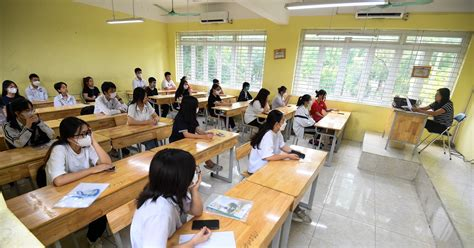July 25, 2023
Among the nation’s many current problems is the decline in public education’s success in teaching students the basic subjects they must have to be successful, or even to survive at a suitable level.
Education Week provided a disturbing look at this situation last September. “The results, released today from the National Assessment of Educational Progress’ Long-Term Trend test, paint a stark picture of 9-year-olds’ achievement in 2022. Over the past two years, math scores dropped by seven points — the first ever decline in the long-term trend assessment’s 50-year history. Reading scores also fell by five points, the biggest drop since 1990.”
In explaining this disturbing information, Peggy G. Carr, commissioner of the National Center for Education Statistics, which administers the National Assessment of Educational Progress, said “These results are sobering,” adding that part of the problem is “that COVID-19 shocked American education and stunted the academic growth of this age group of children.”
Indeed, COVID-19, and the way many in authority over us reacted to it, had a very damaging effect on education. But these problems were not new with the pandemic, as other studies have shown.
Add to that the “progressive” and “woke” elements that have been sneaked into many state and local education systems, some actions by the federal and local governments, and the problem becomes much worse.
The education system — and the public education system in particular, due to the large proportion of our children that parents send to public schools expecting them to be properly educated — is failing in much of America. It is failing the parents and other citizens whose taxes support public education. But, worst of all, it is failing those students who attend those schools. That trust is no longer appropriate for far too many school systems.
Marc Tucker is the president emeritus and a distinguished senior fellow of the National Center on Education and the Economy. He has some interesting comments about education. “In my last blog, I described how high school textbooks that used to be written at the 12th-grade level for 12th graders are now written at the 7th- or 8th-grade level. I cited a report that said that many community college teachers do not assign much writing at all to their first-year students because they cannot write.
“I revealed that the community college course called College Math is not college math at all, but is in reality just a course in Algebra I — a course that is supposed to be passed in middle school in most states — with a few other topics thrown in, and many community college students cannot do the work.
“I pointed to data that says that the students who go to the typical four-year college are no better prepared than those attending community colleges. I then pointed to another study that says that for close to 40 percent of our college students, the first two years of college add virtually no value at all, and ‘not much’ value for the rest.
“I ended by pointing out that, if this is all true, then colleges are typically teaching most students what we used to teach in the high school college-bound track and are not doing it very well.”
Tucker’s revelation was written in 2015.
It was reported by TV station NBC Boston last September that a school district in Massachusetts has been slowly phasing Algebra 1 out of its middle-school curriculum because the advanced math classes were not attended by equal numbers of students of the four racial categories.
This “transition” began in 2017, and was designed to create better equity among math students.
“Equity” is more important in many school systems than merit. It is no longer important that students gain the highest level of knowledge of subjects of which they are capable. It is more important that an equal number of students in each of the races get the same level of knowledge, regardless of how low that level may be.
In higher education, too, it is becoming more important to have the “correct,” or roughly equal numbers of students from various groups than to have the most capable students from whichever groups fill each class level.
But when they are finished with school, how do those students, who really haven’t earned some of the rewards they have received, feel about that? Do they not care? Or, does it negatively affect their self-esteem, self-confidence? Are they really better off having something they did not earn?
And, when they get into the work-a-day world, will they be able to perform as expected, or will their job performance match their less-than-excellent school performance?
It might feel good or please folks to have the “right” number of each race and gender in every organized group. But what we need, and must have in every critical position is the person most qualified, or at the very least, highly qualified, who has proven their qualification, regardless of their race or gender.
But the critical question is, as this affliction of demanding equal numbers grows, and the level of performance correspondingly falls, will the United States be able to successfully compete on the world stage, or protect itself from its adversaries?





